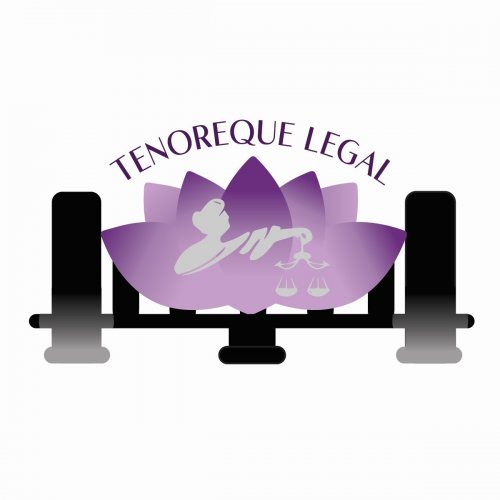Best State, Local, and Municipal Law Lawyers in Port of Spain
Share your needs with us, get contacted by law firms.
Free. Takes 2 min.
List of the best lawyers in Port of Spain, Trinidad and Tobago
About State, Local, and Municipal Law in Port of Spain, Trinidad and Tobago
State, local, and municipal law in Port of Spain, Trinidad and Tobago, encompasses the legal frameworks and regulations established by the Trinidad and Tobago government and local authorities to manage public affairs and maintain order within the community. These laws affect various areas including zoning, land use, public utilities, local governance, public safety, and municipal services. With Port of Spain being the capital city, it serves as the hub for legislative activities and a focal point for implementing and adapting these laws within the broader context of Trinidad and Tobago.
Why You May Need a Lawyer
Engaging with legal issues related to state, local, and municipal matters can be complex. You might need a lawyer if you're involved in disputes concerning property zoning, are a business dealing with local compliance issues, are facing administrative actions from local authorities, or require assistance in understanding and navigating local regulations. Lawyers specializing in this field can provide expert advice, representation, and solutions tailored to your situation, ensuring your rights are protected and you adhere to all necessary legal requirements.
Local Laws Overview
Local laws in Port of Spain, like the wider Trinidad legal system, are influenced by English common law but have been adapted to meet the local context. Important aspects include zoning regulations that dictate land use in specific areas, building codes that ensure construction safety, local business licensing requirements, and environmental policies aimed at protecting the natural surroundings. Public health and safety regulations are also key components, governing standards for sanitation, waste management, and public spaces.
Frequently Asked Questions
What is the role of municipal authorities in Port of Spain?
Municipal authorities are responsible for providing local services such as waste collection, public infrastructure maintenance, parks management, and other community services.
How can I find out about zoning regulations in Port of Spain?
You can contact the City Engineer's office or the Town and Country Planning Division for information regarding zoning and land use regulations.
What steps do I need to take to start a business in Port of Spain?
To start a business, you must register your business with the Companies Registry, obtain the necessary business licenses, and comply with health and safety regulations at the local level.
Are there specific regulations for building construction in Port of Spain?
Yes, building construction must comply with local building codes, which ensure safety and structural integrity. Building permits are required before commencing any construction work.
How are property taxes assessed in Port of Spain?
Property taxes are assessed based on the annual rental value of the property. This includes an evaluation by the Valuation Division of the Ministry of Finance.
Can I challenge a decision made by a municipal authority?
Yes, decisions by municipal authorities can often be challenged through an administrative appeals process, potentially requiring legal guidance to navigate effectively.
What are the penalties for violating local ordinances?
Penalties for violating local ordinances can include fines, legal action, and in certain cases, imprisonment. It varies depending on the severity and nature of the violation.
How are disputes between neighbors handled under local law?
Neighbor disputes can often be resolved through mediation, but may require legal action if they involve property rights or breaches of local ordinances, requiring a legal expert's advice.
Where can I obtain public records or permits in Port of Spain?
Public records and permits can be obtained from local municipal offices, including the City Hall, where various departments issue necessary documentation.
What are the requirements for public safety and sanitation by municipal law?
Municipal laws require adherence to specific standards relating to public safety and sanitation, managed by health and safety inspectors who enforce compliance.
Additional Resources
For additional information and guidance, you can contact:
- The Port of Spain City Corporation for municipal services and regulations.
- The Ministry of Legal Affairs for legal frameworks and access to legal provisions.
- Community legal aid clinics offering assistance for those unable to afford private legal services.
- The Law Association of Trinidad and Tobago for referrals to specialized lawyers.
Next Steps
If you require legal assistance with state, local, or municipal law in Port of Spain, consider taking the following steps:
- Identify the specific legal issue you are facing to seek relevant professional help.
- Contact the Law Association of Trinidad and Tobago to find qualified legal representation or access their referral service.
- Gather all relevant documents and information pertinent to your legal issue to effectively consult with your legal advisor.
- Consider initial consultations to explore your options and understand the legal processes involved.
Seeking competent legal advice ensures a better outcome in dealing with state, local, and municipal law-related issues.
Lawzana helps you find the best lawyers and law firms in Port of Spain through a curated and pre-screened list of qualified legal professionals. Our platform offers rankings and detailed profiles of attorneys and law firms, allowing you to compare based on practice areas, including State, Local, and Municipal Law, experience, and client feedback.
Each profile includes a description of the firm's areas of practice, client reviews, team members and partners, year of establishment, spoken languages, office locations, contact information, social media presence, and any published articles or resources. Most firms on our platform speak English and are experienced in both local and international legal matters.
Get a quote from top-rated law firms in Port of Spain, Trinidad and Tobago — quickly, securely, and without unnecessary hassle.
Disclaimer:
The information provided on this page is for general informational purposes only and does not constitute legal advice. While we strive to ensure the accuracy and relevance of the content, legal information may change over time, and interpretations of the law can vary. You should always consult with a qualified legal professional for advice specific to your situation.
We disclaim all liability for actions taken or not taken based on the content of this page. If you believe any information is incorrect or outdated, please contact us, and we will review and update it where appropriate.














